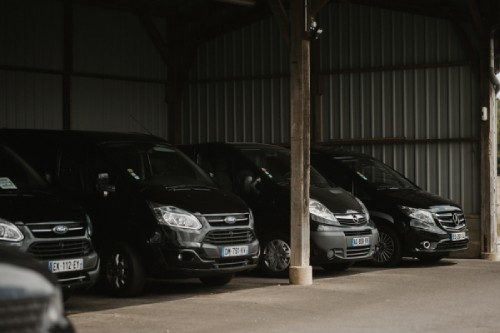
The construction industry in the UK relies heavily on vehicles and equipment to execute projects efficiently and effectively. From cranes and excavators to trucks and vans, these assets are essential for transporting materials, tools, and workers to job sites. However, owning and operating a large fleet comes with significant risks, including accidents, damage, and theft. To mitigate these risks, construction companies need specialised insurance coverage that caters to their unique needs. This is where fleet insurance enters the picture.
Understanding Fleet Insurance
Fleet insurance is a type of motor insurance that provides coverage for a group of vehicles registered under a single name or entity. This could include cars, vans, trucks, buses, and even specialised vehicles like agricultural machinery or construction equipment. Fleet insurance is designed to offer cost-effective coverage for businesses, organisations, and individuals who own and operate multiple vehicles.
Unlike individual vehicle insurance, which is purchased separately for each vehicle, fleet insurance allows policyholders to insure all their vehicles under a single policy. This not only saves time but also reduces costs, as fleet insurance providers typically offer discounts for bulk purchases. Moreover, fleet insurance policies can be customised to meet the specific needs of each business, allowing policyholders to choose the level of coverage that suits their operations.
Policyholders can choose from a range of coverage options, such as third-party liability, comprehensive coverage, and breakdown assistance. They can also take advantage of additional features like windscreen replacement, courtesy car provision, and protected no-claims bonuses. Furthermore, many fleet insurance providers offer risk management services, and driver training programs, to help policyholders reduce their risk exposure and improve their overall fleet management capabilities.
The Importance of Fleet Insurance in Construction

In the construction industry, vehicles and heavy machinery play a crucial role in the successful execution of projects. From transporting materials and equipment to hauling heavy loads and performing complex tasks, construction companies rely heavily on their fleets to get the job done.
However, owning and operating a fleet of vehicles and heavy machinery comes with significant risks and challenges including damage or loss due to accidents, theft, or natural disasters. Heavy machinery and vehicles can be expensive to repair or replace, and accidents can result in costly downtime, impacting project timelines and profitability. Additionally, construction companies must comply with strict regulations regarding vehicle maintenance, safety standards, and operator qualifications, which can be difficult to manage without proper resources.
fleet insurance can help construction companies comply with regulatory requirements related to vehicle maintenance and safety standards. Insurance providers often offer risk management services, such as vehicle inspections and driver training programs, to help policyholders maintain their fleets in good condition and reduce the likelihood of accidents.
Types of Fleet Insurance Policies
There are several types of fleet insurance policies available in the UK, catering to the diverse needs of businesses across various industries. Comprehensive coverage is the most popular choice among fleet operators, offering extensive protection against damages, losses, and liabilities. This policy covers accidental damage, theft, fire, and malicious damage, providing peace of mind for businesses that rely heavily on their fleet. Comprehensive coverage is particularly beneficial for larger fleets, as it offers a higher level of financial protection against unforeseen events.
Another common type of fleet insurance policy is third-party, fire, and theft coverage. As the name suggests, this policy covers damages or losses resulting from fires, theft, or accidents involving third-party vehicles or property. This policy is ideal for businesses that require basic protection without the added expense of comprehensive coverage. It is commonly chosen by smaller fleets or those operating on a tight budget.
For businesses that operate unique construction equipment, specialised policies are available. These policies cater to the specific needs of niche industries, such as plant hire, haulage, and agriculture. Specialised policies may cover equipment such as cranes, excavators, and tractors, providing protection against damage, theft, or loss. These policies may also include additional features such as breakdown recovery, roadside assistance, and engineering inspections.
Tailoring Fleet Insurance for Construction Needs
One key aspect of tailoring fleet insurance for construction is covering the various types of vehicles and equipment used on job sites. This may involve separate policies for different types of vehicles, such as cars, pickups, and large commercial trucks, as well as specialised coverage for heavy equipment like cranes and backhoes. Customising policies in this way helps ensure that each asset is properly protected and that clients are not paying for unnecessary coverage.
Regular policy reviews and adjustments are also important as construction businesses grow or change. For example, if a company adds new vehicles or equipment to its fleet, the insurance policy should be updated to reflect these changes. Similarly, if a client expands their operations into new areas or takes on more complex projects, their policy may need to be revised to account for increased risks or new exposures. Regular communication between clients and insurers helps ensure that policies remain relevant and effective.
Legal and Regulatory Considerations

In the UK, fleet insurance for construction companies must comply with various laws and regulations. The Road Traffic Act 1988 and the Motor Vehicles (Insurance) Regulations 1972 require all vehicles used on public roads to have valid insurance coverage. Additionally, the Health and Safety at Work etc. Act 1974 imposes duties on employers to ensure the health and safety of their employees and others who may be affected by their work activities. This includes ensuring that vehicles and equipment are properly maintained and insured.
Construction companies must also comply with industry-specific regulations, such as the Construction (Design and Management) Regulations 2015, which impose duties on clients, designers, contractors, and principals to ensure that construction projects are carried out safely. This includes ensuring that all vehicles and equipment used on-site are properly insured.
Failure to comply with these regulations can result in serious legal consequences, including fines, penalties, and even criminal prosecution. For example, failing to have proper insurance coverage for a vehicle involved in an accident could lead to a fine of up to £5,000 and disqualification from driving. Moreover, inadequate insurance coverage could leave a company exposed to significant financial losses in the event of an accident or damage to vehicles or equipment.
Future Trends and Developments
The use of telematics technology is becoming increasingly popular in fleet insurance, allowing for real-time monitoring of driver behaviour, vehicle location, and maintenance needs. This data can help insurers offer more accurate pricing and risk assessment, as well as provide valuable information for fleets to improve their operations and reduce costs.
Another emerging trend is the adoption of green vehicles, such as electric or hybrid models, which can help reduce carbon emissions and operating costs. As the construction industry continues to evolve, we may see a shift towards alternative fuel sources and more sustainable transportation solutions.
The construction industry’s increasing focus on sustainability and environmental responsibility is likely to impact fleet insurance needs in the future. For instance, the growing demand for eco-friendly building materials and techniques may require specialised transportation and logistics services, which would need to be reflected in fleet insurance policies.
Fleet insurance is a crucial aspect of running a successful and responsible construction business in the UK. It provides protection against various risks associated with vehicle ownership and operation, such as accidents, damages, and third-party liabilities. By choosing the right policy and adopting best practices, construction businesses can ensure the safety of their employees, customers, and the general public, while also protecting their assets and reputation.
Proper fleet insurance coverage is essential for construction companies to mitigate risks, minimise costs, and maintain a positive image. It is a critical investment for any construction business looking to operate responsibly and successfully in today’s competitive market.

